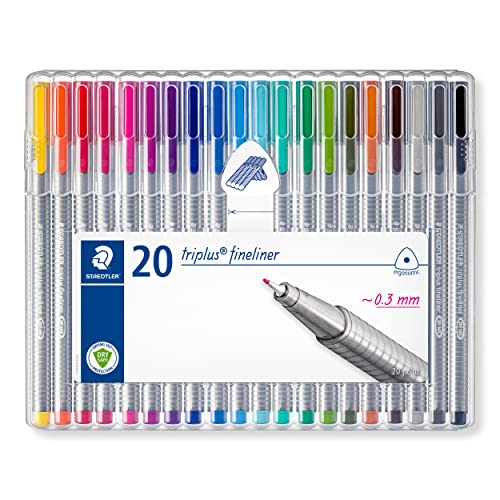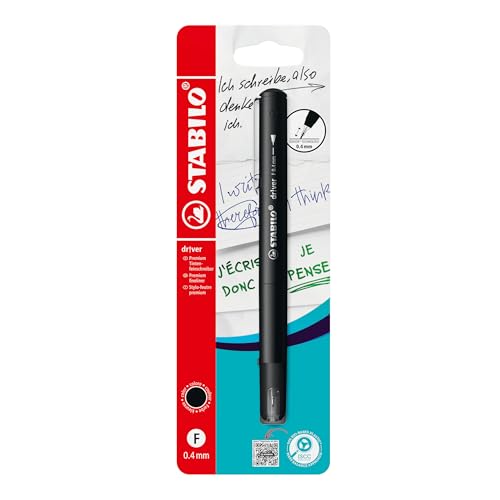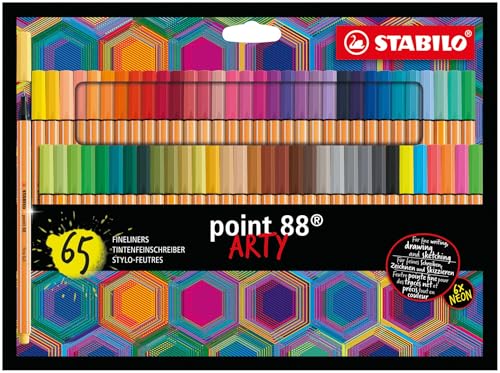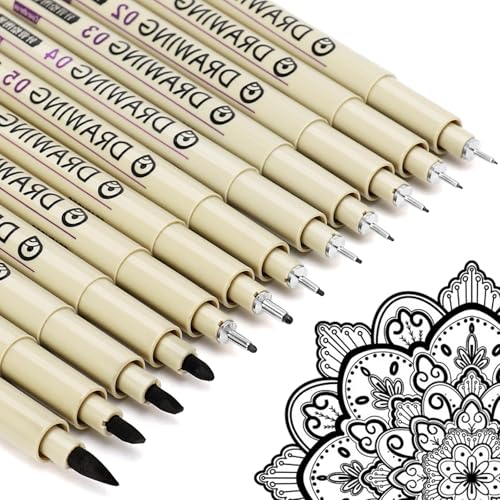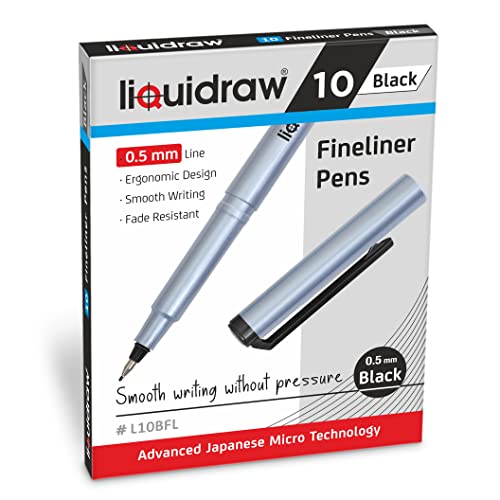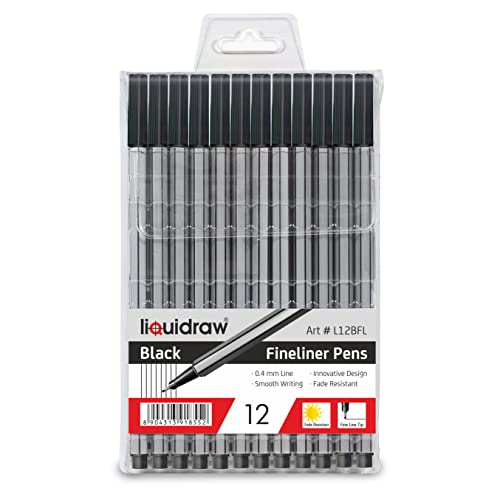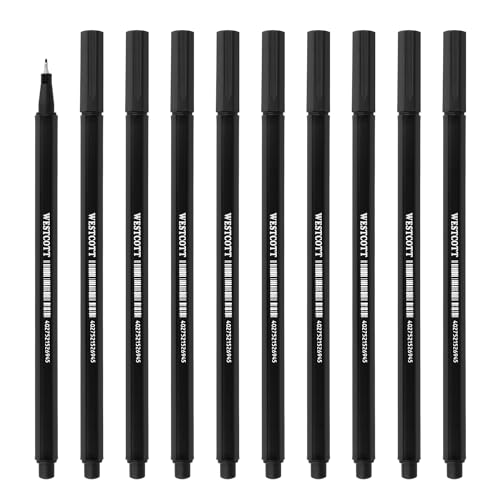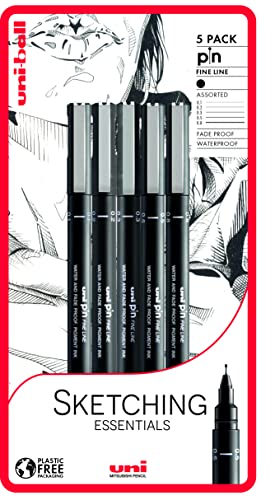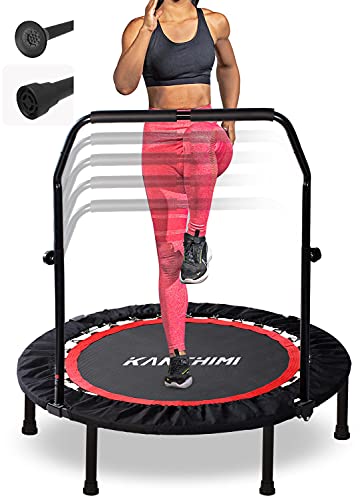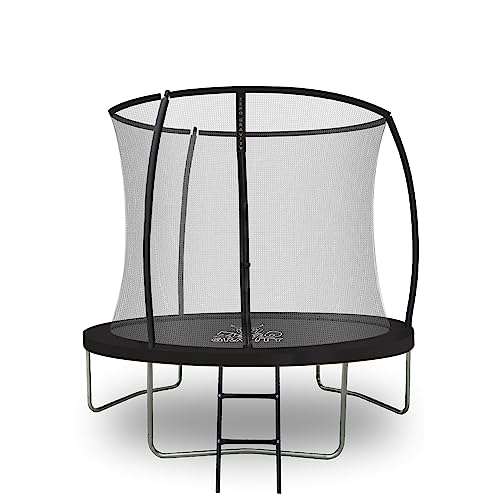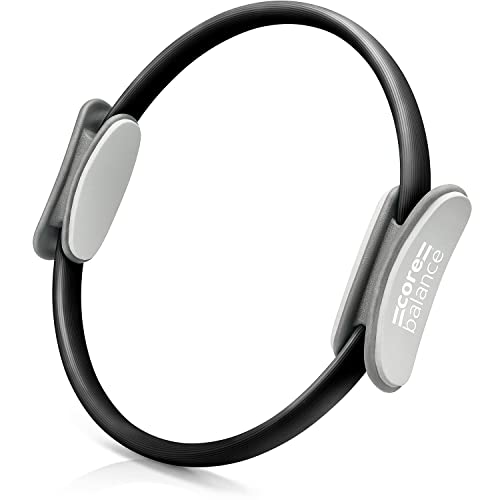What is a Fineliner and Why Should We Use One?
Understanding Fineliners
A fineliner is a type of pen that features a fine tip, designed for precision in drawing and writing. They produce clean, sharp lines, making them ideal for detailed artwork, technical drawings, and handwriting that requires a touch of elegance. Using a fineliner allows us to achieve intricate details that ordinary pens simply cannot manage. Whether we’re sketching, doodling, or jotting down notes, fineliners elevate the quality of our work.
Advantages of Using Fineliners
One of the primary benefits of fineliners is their versatility. They are available in various tip sizes, allowing us to create multiple line styles with ease. Additionally, they are often water-resistant and fade-proof, meaning our creations will stand the test of time. Moreover, fineliners come in a wide array of colours, enabling us to add vibrancy to our notes or illustrations. Their consistent ink flow ensures that our writing and drawing experiences are smooth, reducing frustration.
Key Features to Look for in a Fineliner
Ink Quality
When selecting a fineliner, the quality of the ink is paramount. We should look for pens that contain archival-quality ink, as this type ensures that our artwork or notes will not fade over time. Water-resistant ink is a bonus as it safeguards our drawings when exposed to moisture.
Tip Size
Fineliners come in various tip sizes, typically ranging from 0.05mm to 1.0mm. A finer tip allows for more detail, whereas a broader tip can be used for bolder strokes. Depending on our projects—whether they require fine detail or broad shading—we should select an appropriate tip size.
Ergonomics of the Pen
Comfort is key when using fineliners, especially for extended periods. A comfortable grip can significantly enhance our writing experience, so we should consider pens that feature ergonomic designs. Look for soft grip sections that provide comfort while we draw or write.
Durability and Build Quality
We want fineliners that won’t give up on us after a few uses. Opting for high-quality materials will ensure the longevity of our pens. Check reviews or product descriptions for information on flexibility and break resistance.
Top Fineliner Brands We Recommend
Pilot
Pilot is known for its high-quality fineliners that offer smooth writing experiences. Their range includes options for both professional artists and casual users. The precision and performance of their pens make them a favourite among many.
Staedtler
Staedtler is a trusted name in the world of art supplies, and their fineliners are no exception. They offer a diverse selection of colours and tip sizes, ensuring that there’s something for everyone.
Faber-Castell
Faber-Castell’s fineliners are celebrated for their vibrant ink and exceptional quality. They’re particularly popular among artists who appreciate rich colours and precise lines.
Uni-ball
Uni-ball’s fineliners stand out for their water-resistant and fade-proof ink, making them a reliable choice for note-taking and creative projects alike.
How to Choose the Right Fineliner for Your Needs
Assessing Your Purpose
Before we purchase a fineliner, it’s essential to consider its intended use. If we are looking to do detailed illustrations, a finer tip would be more suitable. For journaling or everyday writing, a broader tip could offer a bolder look.
Exploring Variety
Trying out different brands and tip sizes can be beneficial. Many stationery retailers allow us to test pens before buying, ensuring we find the one that feels right in our hand and suits our style.
Budget Considerations
Fineliners come at various price points, so we should consider our budget. While it’s tempting to choose the cheapest option, investing a little more can often lead to better quality and performance.
Tips for Using Fineliners Effectively
Proper Grip Technique
To achieve the best results with a fineliner, we should use a relaxed grip. Holding the pen too tightly can lead to fatigue and inconsistent lines. Instead, let the pen glide across the page without excessive pressure.
Experiment with Lines
We can create interesting effects by varying our line pressure and speed. Practising different strokes can help us become more familiar with how our fineliner responds, allowing us to better control our outcomes.
Store It Properly
To prolong the life of our fineliners, we need to store them properly. Keeping them horizontal and ensuring the caps are tightly closed will prevent the ink from drying out.


